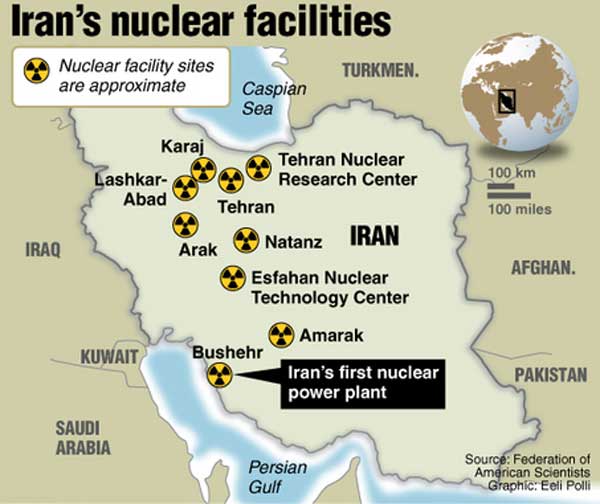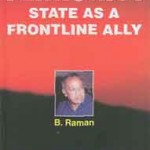During the past decades, the US had been unswervingly steadfast in its belief that Iran had been an “axis of evil” – one which had stubbornly resisted to honour its obligations under the non-proliferation treaty ( NPT ) Ironically, it was none other than the US, that signed with Iran –the US –Iran nuclear agreement for civil uses of atomic energy as a part of Eisenhower’s atoms for peace programme. The accord helped Iran procure from the US several kilograms of enriched uranium, which, in fact, much later became the turning point for Iran’s ambitions to develop nuclear weapons, which the international community is now attempting to stem.1
The Father of Pakistan’s nuclear weapons programme, Abdul Khader Khan, offered a certain degree of sophistication to Iran…
Adding momentum to Iran’s nuclear ambitions from that stage, was Pakistan – which opened its nuclear closet to countries which had strategically bound it from time to time, -notably North Korea and Iran – with Pyongyang, the collaboration was for fissile material and delivery warheads. The Father of Pakistan’s nuclear weapons programme, Abdul Khader Khan offered a certain degree of sophistication to Iran’s nuclear technical knowhow for as yet undisclosed consideration
Today, the Obama administration is desperately trying to reach out to Tehran in a bid to ensure, that the latter curbs its enrichment capacity to levels inadequate for weaponisation, to begin with for a ten year duration – i.e. the “Sun set clause” also termed as the double digit duration –a proposal that will curb Iran’s nuclear programme for a period of at least ten years-after which restrictions will be eased. The P5 +1 negotiating group i.e. the US, the UK, France, Russia , China and Germany involved the negotiations had favoured a 15 to 20 year duration. After much opposition to the proposal, the Iranian Foreign Minister Zavad Zafir –who was negotiating with the US Secretary of State John Kerry –in Montreux ( Switzerland ) has signaled his concurrence to the proposal.2
It would be pertinent to ask what motivates Iran to concede to reverse course vis-à-vis its immediate nuclear ambitions. After all, an accord will compel Iran to a reduction of nearly 10,000 centrifuges it now operates and cut its enriched uranium production, besides Tehran committing to sending back stockpiles of enriched uranium out of the country-a move that would further prolong its launch of a nuclear programme, other than for strictly peaceful purposes. Furthermore, subjecting itself to international monitoring and inspections-will be a humiliating concession for a nation like Iran, which portrays itself as a stubborn uncompromiser.
The woeful state of Iran’s economy, not least because of low oil prices and the effect of sanctions are also factors making die hard anti-US groups within the country to think of a policy recast. According to Dr. Mohammad Nahavandian, the Chief of Staff to president Hassan Rouhani “one would like America to forget about the rantings of former Iranian president Mahmoud Ahmadinejad and try a different approach that does not lead to military confrontation and war”. He further states “the government’s limited ability to export oil, import goods and participate in the international banking system are largely responsible for high unemployment and an inflation of 30 percent”3
Saudi Arabia has sought a nuclear protection from Pakistan during prime-minister Nawaz Sharif’s recent visit to the Kingdom…
Thankfully for Tehran the gumption it adopted to forge ahead with considering striking a deal, has the blessings of no less a figure than Ayatollah Ali Khamenei -the most powerful person in Iran, besides being its chief spiritual ideologue.
Now there is every likelihood that this long protracted deal will see the light of day, quite likely, before the end of March 2015, sensing the above the Isreali prime-minister has not merely cautioned. but castigated the US and others working for a deal (this was done when prime-minister Netanyahu addressed the US Congress recently ) He said that a deal would pose an almost impossible to match situation to the world. He argued that the alternative to this deal is a “better deal”. By the term “better deal” he meant one which would ensure Iran dismantling its nuclear infrastructure, a demand, which would be never acceptable to Iran. According to Michael A Cohen “If Iran is as radical and ideologically dogmatic as Netanyahu argues and as committed to Israel’s destruction, as he claims, why would mere sanctions make a difference. Iran cannot be both – unbending in its goals in the region and malleable because of ramped up economic pressure”.4
The lack of bi-partisan support to the Obama led initiative within the US is intensely worrying. 47 Republican Senators -in the aftermath of prime-minister Netanyahu’s address to the US Congress, have sent an open letter to the leaders of Iran informing them that while the US president Barack Obama’s term will end on Jan 20, 2017, many of the Congressmen will be hanging on a lot longer and can rescind any agreement that is not brought to the Congress for ratification. Anything not approved by Congress is a mere executive agreement between Obama and Khamenei.5
President Obama was upset with the letter the Republicans shot out to the Iranian leadership- accusing the GoP of making common cause with the hardliners in Iran. Vice president Joe Bidden reacted saying “ this letter, in the guise of a constitutional lesson ignores two centuries of precedent and threatens to undermine the ability of future US President-whether Democrat or Republican, to negotiate with others on behalf of the nation “ He justified the negotiations stating “ presidential prerogative is part of “essential tools to the conduct of our foreign policy” Iran’s Foreign Minister Javad Zarif reacted to the letter from the Republicans saying “the US is not trustworthy”
Riyadh is not merely worried about an attack by ISIS through Iraq -but also Iran sponsored Shia Houthi rebels in Yemen.
Saudi Arabia, Turkey, Qatar and other West Asian Arab States as well as the Arab League, are also ill at ease with the US. Saudi Arabia has sought a nuclear protection from Pakistan during prime-minister Nawaz Sharif’s recent visit to the Kingdom –where Riyadh accorded a welcome of a kind, never extended to any Pakistani prime-minister.yet. Riyadh is not merely worried about an attack by ISIS through Iraq -but also Iran sponsored Shia Houthi rebels in Yemen.
Islamabad which right from the time of president Zia ul Haq has been augmenting the security requirements of Saudi Arabia –has once again been pleaded upon by Riyadh to provide the technical knowhow, and if required the nuclear technology – to counter threats from Iran and others hostile to it. Pakistan, it appears has convinced the oil rich Saudi Arabia that its military prowess can safeguard Saudi Arabia from internal dissent and external threats, including that from Iran.
Of course, Islamabad will have to so fine tune its diplomacy that accommodating the concerns of Riyadh does not make it lose its leverage against Shia Iran, at this juncture when Shias are camped in large numbers in ghettos close to the Pakistan –Iran border due to the mass ethnic killings. According to the latest press reports Pakistan will maintain an equidistance between adjacent Iran and Saudi Arabia.
Conclusion:
The sentiment among hardliners in Iran –especially the rank and file of its Revolutionary Guards is immensely anti-Israel –with sporadic threats to wipe out the Jewish State – this is demonstrably manifested in its support to Hamas. Furthermore, Zaidi Shia Houthi rebels have taken over Sanna ( Yemen’s capital ) which has irked Riyadh and allies to no end. Saudi Arabia and the West are also without a strategy to dislodge the Bashar al Assad regime in Syria since Iran sponsored Hezbollah will not let that easily happen. It is interesting that such positions are being taken, when both Saudi Arabia and Iran are in direct confrontation with the Islamic State, as are the Arab League, Turkey, Syria, the US and the West in general.
References :
- New York Times –March 5, 1957
- Fox News and CNN
- “8 Days in Tehran : A documentary produced by James Jacoby and Michael Karzis
- Michael A Cohen ( A fellow at Century Foundation ) The Boston Globe March 7, 2015
- Obama’s “ Lame Duck “ status looms large in Iran nuclear negotiation Jerusalem Post March 3, 2015






Informative, interesting, in depth articles.